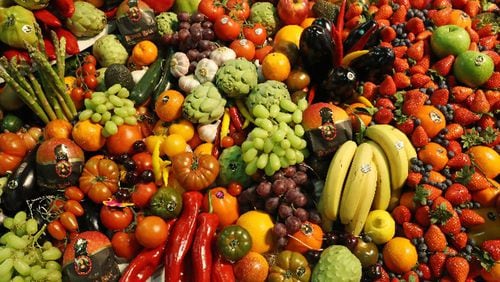Veggies may not be that appealing to some. However, if they're given seductive names, you may be more likely to add them to your diet, a new study says.
»RELATED: This is what fruits and vegetables looked like before we domesticated them
To determine how labels affect food sales, Stanford University researchers used the school’s cafeteria to experiment with the following food labels:
- basic - where the description was simply "carrots," for example
- healthy restrictive - "carrots with sugar-free citrus dressing"
- health positive - "smart-choice vitamin C citrus carrots"
- indulgent - "twisted citrus-glazed carrots"
By rotating beetroot, butternut squash, carrot, corn, courgette, green beans and sweet potatoes, scientists counted how many students selected each veggie. They then weighed how much food had been taken from each tray at the end of each meal.
»RELATED: These fruits and vegetables can give you whiter teeth
After an entire autumn academic term, analysts found that sales went up by 25 percent when indulgent markers were used compared to the basic names. It increased by 41 percent when compared to healthy restricting labels and 30 percent when compared to healthy positive ones.
The top vegetable choices were "twisted garlic-ginger butternut squash wedges" and "dynamite chili and tangy lime-seasoned beets."
"When most people are making a dining decision, they are motivated by taste. And studies show that people tend to think of healthier options as less tasty for some reason,” says researcher Brad Turnwald.
Although this strategy may not work for all, doctors believe this could be a push in the right direction.
» RELATED: These 9 healthy-sounding foods have more sugar than a Krispy Kreme doughnut
About the Author







